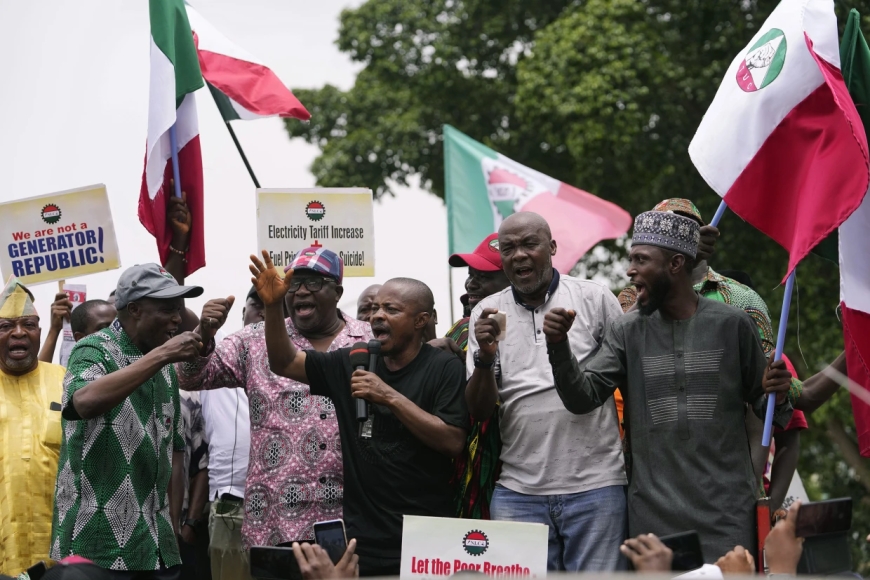Nigeria Paralyzed by Strikes as Labor Unions Demand Salary Increases Amid Economic Crisis
On Monday, June 3, 2024, Nigeria, Africa’s most populous country, came to a standstill as its largest labor unions ...........


On Monday, June 3, 2024, Nigeria, Africa’s most populous country, came to a standstill as its largest labor unions initiated a strike to demand salary increases amidst the worst cost of living crisis in decades. The strike led to widespread disruptions, including power outages and the closure of major airports.
President Bola Tinubu's recent economic reforms, notably the removal of fuel subsidies, have spurred inflation to a 28-year peak. This strike marks the fourth since Tinubu assumed office a year ago.
Union actions caused the shutdown of the national electricity grid, with workers driving away operators from key transmission stations, according to the Transmission Company of Nigeria. Efforts to restore power were thwarted by protesting workers.
In cities such as Abuja and Lagos, government employees either abstained from work or obstructed access to offices, including airports, stranding numerous passengers as local airlines ceased operations. The aviation workers' association declared an indefinite halt to their participation.
“We demand a living wage,” proclaimed the Nigerian Labour Congress on X, condemning their current earnings as a “starvation wage.” Alongside the Trade Union Congress, these unions represent hundreds of thousands of public sector employees across essential services.
The unions are advocating for an increase in the minimum monthly wage from 30,000 naira ($20) to nearly 500,000 naira ($336). The government's counteroffer stands at 60,000 naira ($40).
Information Minister Mohammed Idris cautioned that meeting the unions’ demands would swell the government wage bill by 9.5 trillion naira ($6.3 billion), potentially destabilizing the economy.
Experts have voiced concerns over the sustainability of a $336 minimum wage for Nigeria's states, many of which already struggle with payroll obligations. “It is one thing to sign it (the new wage bill) but it is another thing for you to be able to sustain it,” noted Muda Yusuf, head of the Nigeria Center for Promotion of Private Enterprise.
Labor unions argue their case by highlighting the opulent lifestyles of Nigeria’s public officials. The elimination of longstanding fuel subsidies on President Tinubu's first day in office caused fuel prices to more than double in one of Africa's leading oil producers, leading to a sharp increase in transportation and commodity costs.
Additionally, the government's devaluation of the naira to attract foreign investment has further exacerbated the prices of basic goods in a nation of over 210 million people heavily reliant on imports.
May 9, 2025 103
May 9, 2025 110
May 7, 2025 430
May 6, 2025 559
May 6, 2025 490
Apr 15, 2023 26.6k
Feb 15, 2023 26.2k
Apr 15, 2023 24.5k
Mar 31, 2025 4.2k
Mar 30, 2025 3.7k
This site uses cookies. By continuing to browse the site you are agreeing to our use of cookies.


